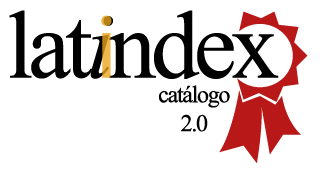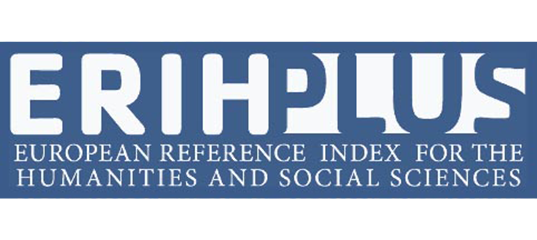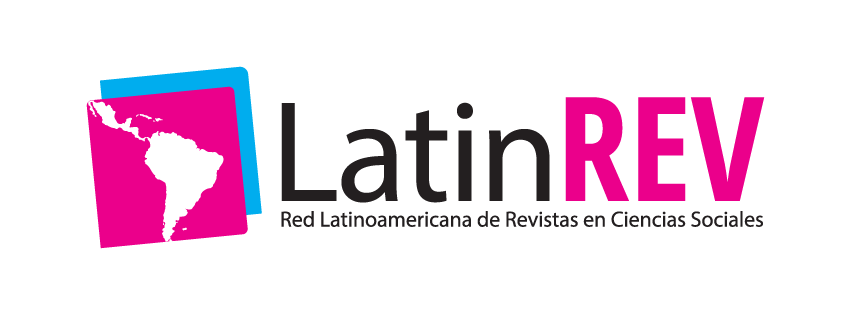Desarrollo de una aplicación móvil utilizando el framework MEAN Stack e IONIC: Un estudio de caso en una compañía de transporte
DOI:
https://doi.org/10.46480/esj.4.2.74Palabras clave:
Mobile application, IONIC framework, MEAN STACK framework, SCRUM development methodology, UsabilityResumen
La utilización de aplicaciones móviles se ha convertido en un componente relevante transaccional dentro de una organización. Por tal motivo, se desarrolló un sistema móvil informativo para la gestión de rutas dentro de la compañía de transporte pesado Torres Revelo S.A, basado en la metodología ágil de desarrollo SCRUM y el framework MEAN Stack e Ionic basados en JavaScript. En este proyecto, se sometió a una prueba de usabilidad en función a la norma ISO/IEC 25010, tomando como referencias la inteligibilidad, aprendizaje, operabilidad, protección frente a errores de usuario, estética y accesibilidad. Se utilizó un cuestionario de 26 preguntas con el uso del método de Nielsen, aplicando a un total de 73 usuarios en todo el proceso del desarrollo de la aplicación, basado en prototipos. Al tabular los resultados obtenidos, se aplicó la prueba de chi cuadrado para determinar que la aplicación móvil y web es fácil de usar, aprender y permite al usuario realizar la trazabilidad de la ruta más corta. Estos procesos permiten tener una mejor gestión de la información dentro de la compañía.
Descargas
Referencias
H. Falaki, R. Mahajan, S. Kandula, D. Lymberopoulos, R. Govindan, y D. Estrin, “Diversity in smartphone usage”, en MobiSys’10 - Proceedings of the 8th International Conference on Mobile Systems, Applications, and Services, 2010, pp. 179–194.
P.-S. Nicoară y I. Haidu, “A GIS BASED NETWORK ANALYSIS FOR THE IDENTIFICATION OF SHORTEST ROUTE ACCESS TO EMERGENCY MEDICAL FACILITIES”, 2014.
R. Bajaj, S. L. Ranaweera, y D. P. Agrawal, “GPS: location-tracking technology”, Computer (Long. Beach. Calif)., vol. 35, núm. 4, pp. 92–94, may 2008.
A. Karanjit, “MEAN vs. LAMP Stack”, 2016.
S. Yusuf, “Ionic Framework By Example”, 2016. [En línea]. Disponible en: https://books.google.com.ec/books?hl=es&lr=&id=LQMcDAAAQBAJ&oi=fnd&pg=PP1&dq=ionic+framework&ots=bqq30jnLC_&sig=1Yjqli9N106EXH4-MlN98M4MnE0&redir_esc=y#v=onepage&q=ionic framework&f=false. [Consultado: 10-feb-2020].
J. Salazar, Á. T. Casallas, J. C. Linares, A. Lozano, y Y. L. Valbuena, TIA Tecnología, investigación y academia, vol. 6, núm. 2. [s.n.], 2018.
S. J. Vaughan-Nichols, “Will mobile computing’s future be location, location, location?”, Computer (Long. Beach. Calif)., vol. 42, núm. 2, pp. 14–17, 2009.
M. Singhal y A. Shukla, “Implementation of Location based Services in Android using GPS and Web Services”, 2012.
A. Chandra, S. Jain, y M. A. Qadeer, “GPS locator: An application for location tracking and sharing using GPS for Java enabled handhelds”, en Proceedings - 2011 International Conference on Computational Intelligence and Communication Systems, CICN 2011, 2011, pp. 406–410.
W. S. El-Kassas, B. A. Abdullah, A. H. Yousef, y A. M. Wahba, “Taxonomy of Cross-Platform Mobile Applications Development Approaches”, Ain Shams Eng. J., vol. 8, núm. 2, pp. 163–190, jun. 2017.
S. McIlroy, N. Ali, y A. E. Hassan, “Fresh apps: an empirical study of frequently-updated mobile apps in the Google play store”, Empir. Softw. Eng., vol. 21, núm. 3, pp. 1346–1370, jun. 2016.
S. Hassan, C. Tantithamthavorn, C. P. Bezemer, y A. E. Hassan, “Studying the dialogue between users and developers of free apps in the Google Play Store”, Empir. Softw. Eng., vol. 23, núm. 3, pp. 1275–1312, jun. 2018.
J. Sauro y J. Lewis, “Quantifying the User Experience: Practical Statistics for User Research - Jeff Sauro, James R Lewis - Google Libros”, 2016. [En línea]. Disponible en: https://books.google.com.ec/books?hl=es&lr=&id=USPfCQAAQBAJ&oi=fnd&pg=PP1&dq=user+experience&ots=Vx2cY47pUn&sig=etEdl4LVCZ4De7bePsgnTtKInp4&redir_esc=y#v=onepage&q=user experience&f=false. [Consultado: 10-feb-2020].
M. Bharath, K. V. Reddy, y R. Dey, “Implementation of IoT Architecture for Intruder Alert System using MQTT Protocol and MEAN Stack”, en 2018 4th International Conference on Computing Communication and Automation (ICCCA), 2018, pp. 1–5.
J. S. Heredia y G. C. Sailema, “Comparative Analysis for Web Applications Based on REST Services: MEAN Stack and Java EE Stack”, KnE Eng., vol. 3, núm. 9, p. 82, dic. 2018.
T. Nevalainen, “MEAN Software Stack”, 2018.
M. Huynh, P. Ghimire, y D. Truong, “HYBRID APP APPROACH: COULD IT MARK THE END OF NATIVE APP DOMINATION?”, 2017.
D. Flanagan, “JavaScript: The Definitive Guide - David Flanagan - Google Libros”, 2006. [En línea]. Disponible en: https://books.google.com.ec/books?hl=es&lr=&id=k0CbAgAAQBAJ&oi=fnd&pg=PT6&dq=javascript&ots=O3trjjkyrV&sig=H4n_jB_VWPLRhv1rdXlIaR-lHUg&redir_esc=y#v=onepage&q=javascript&f=false. [Consultado: 30-ene-2020].
Huenei IT Services, “Ventajas del Framework Ionic | Huenei”, 2017. [En línea]. Disponible en: https://www.huenei.com/index.php/es/2017/06/06/ventajas-de-ionic-framework/. [Consultado: 05-sep-2019].
L. Enciso-Quispe, J. Quichimbo, F. Luzon, E. Zelaya-Policarpo, y P. A. Quezada-Sarmiento, “REST architecture in the implementation of a web and mobile application for vehicular tariff rotating parking”, en 2017 12th Iberian Conference on Information Systems and Technologies (CISTI), 2017, pp. 1–6.
H. García, “Características de los servicios REST”, 2016. [En línea]. Disponible en: https://www.comunicacionesindustrialeslogitek.com/caracteristicas-de-los-servicios-rest/. [Consultado: 11-sep-2019].
N. Wang, X. Chen, G. Song, Q. Lan, y H. R. Parsaei, “Design of a New Mobile-Optimized Remote Laboratory Application Architecture for M-Learning”, IEEE Trans. Ind. Electron., vol. 64, núm. 3, pp. 2382–2391, mar. 2017.
E. Elrom, Pro MEAN Stack Development. Berkeley, CA: Apress, 2016.
A. Ramos y M. Ramos, “Aplicaciones Web 2.a edición - 9788428398756 - ALICIA RAMOS MARTÍN, MARIA JESUS RAMOS MARTÍN - Resumen y compra del libro - paraninfo.es”, 2014. [En línea]. Disponible en: https://www.paraninfo.es/catalogo/9788428398756/aplicaciones-web-2-a-edicion. [Consultado: 11-sep-2019].
S. Ouhbi, A. Idri, J. Fernández-Alemán, A. Tova, y H. Benjelloun, “Applying ISO/IEC 25010 on Mobile Personal Health Records”, 2015.
D. Chellappa, “Android Application Generator for Mobile Platform”, 2017. [En línea]. Disponible en: http://repo.bg.pw.edu.pl/index.php/en/r#/info/master/WUT4282e622dd624144af49897f29a8ee6c/. [Consultado: 10-feb-2020].
Descargas
Publicado
Número
Sección
Licencia
Los autores conservan los derechos sobre sus artículos y, por tanto, son libres de compartir, copiar, distribuir, ejecutar y comunicar públicamente su obra en sus sitios web personales o en repositorios institucionales, después de su publicación en esta revista, siempre que se proporcione la referencia bibliográfica que acredite su publicación original.































